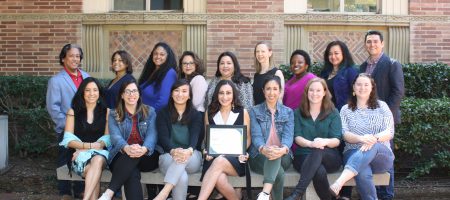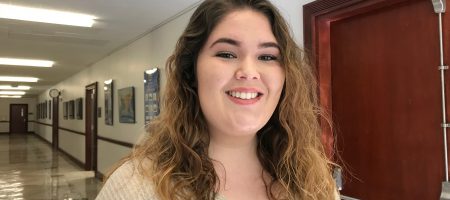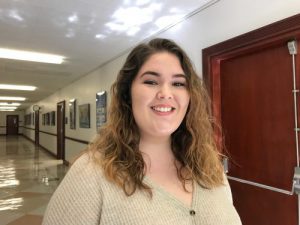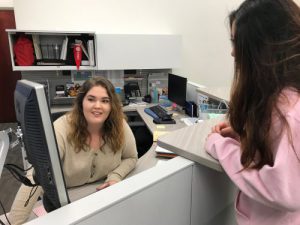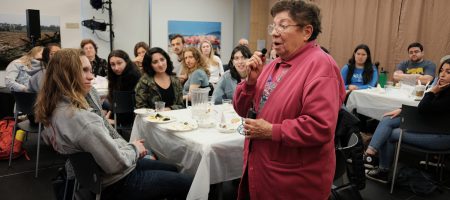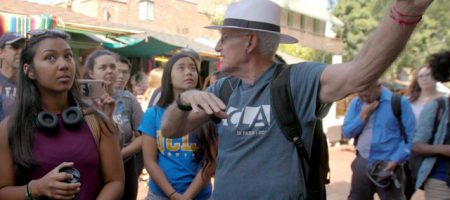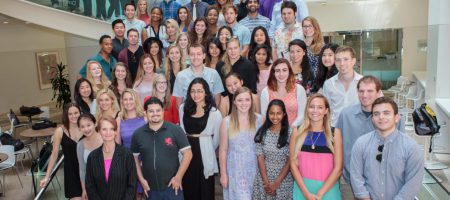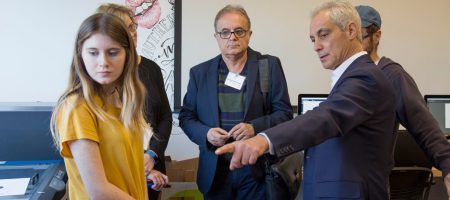Advising Communities of Excellence (ACE) fosters community of advisors
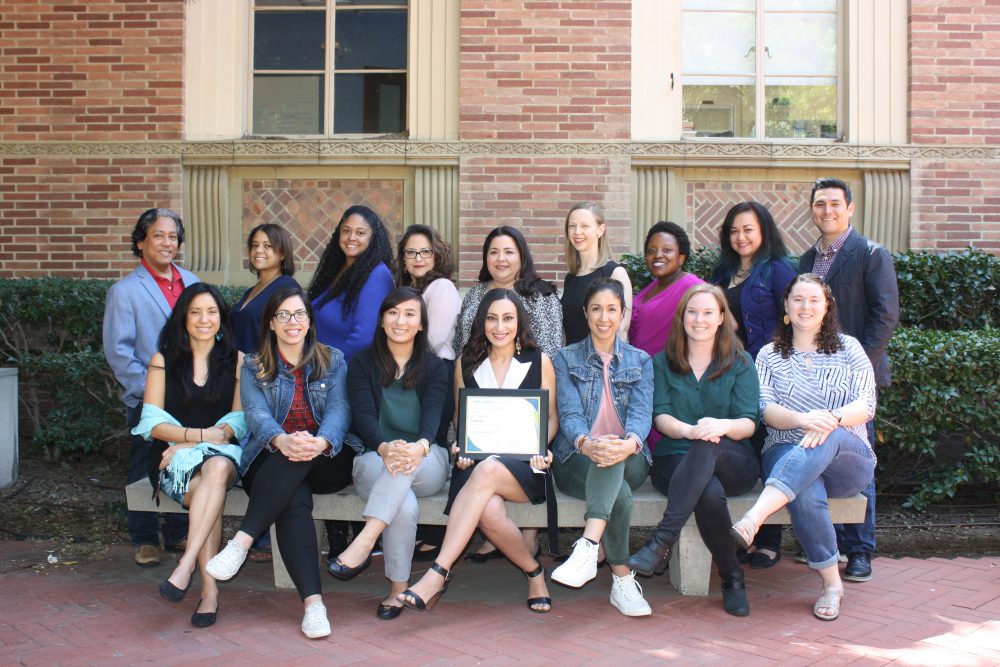
Marian Gabra, center, with the ACE Committee
Twice per quarter, around 50 staff from across UCLA gather at interactive workshops to discuss best practices, tools, and theory about the work they do every day: advising students.
The workshops are part of College Academic Counseling’s Advising Communities of Excellence (ACE) Professional Development Program. Combining workshops and smaller learning communities, ACE is a unique blend of scholarship, community-building, and professional development that, only in its second year, is already gaining recognition as one of the most significant professional development programs for college advisors in the country.
Marian Gabra, director of advising professional development, created ACE from the ground up in 2016, under the direction of Assistant Vice Provost for Undergraduate Academic Support Corey Hollis. Inspired by a growing movement across the advising profession toward professional development in order to achieve greater student success, Hollis tasked Gabra with building a professional development program for advisors at UCLA.
“The goal is to get us all on the same page, speaking the same language, and supporting students in a very intentional way and in a way that’s very collaborative and cohesive,” Gabra said.
Gabra leads ACE’s committee of 20 volunteer members representing the College of Letters and Science and departmental advisors, the Schools, and the Division of Student Affairs.
“Building community, practicing theory, and theorizing practice”
The ACE program includes bi-quarterly interactive workshops, each one focusing a different topic, such as “Fostering Resilience in Students and Ourselves,” “Advising Approaches and Theories,” and “Supporting First-Generation Students.” Workshops include readings of scholarship and theory, a brief presentation about the topic, and discussion of scenarios and case studies. At the end of the workshop, each participant formulates an action plan for how they will incorporate what they’ve learned into their own practice.
Workshops are open to all staff campus-wide as well as graduate students if space allows. Each workshop typically sees around 50 attendees on average, and they represent a wide range of advisors, from academics to the Career Center, from Residential Life to financial aid – any staff member who advises students is encouraged to attend.
Staff can join smaller ACE learning communities through the ACE Reads Study Group Program, which focus on specific topics, such as wellness, UC basic needs, and leadership and management. Each study group is expected to produce a deliverable at the end of the academic year, such as a published paper or presentation. ACE has partnered with UCLA Librarians to develop a seven-workshop series that will launch this summer and extend throughout the next academic year. This series will support advisors who wish to learn more about conducting their own academic research within the field of advising.
The ACE mentoring program also provides additional support and mentorship opportunities for campus professionals.
With the tagline “Building community, practicing theory, and theorizing practice,” ACE is not merely a training course, Gabra said.
“What sets ACE apart from other professional development programs is our desire to participate and engage with theory, whether that’s to become more scholarly advisors or to be scholar-practitioners,” Gabra said. “The fact that we’re providing the support through librarians and in partnership with faculty is really going to help propel this program forward and [position] UCLA advising as the frontrunners in the country.”
Making an impact at UCLA and beyond
The national advising community has already taken note of ACE. In March, Gabra and the ACE program won the Excellence in Advising Innovation Award from the National Academic Advising Association (NACADA) Region 9, which represents California, Nevada and Hawaii. At last year’s Advising Research Symposium hosted by ACE, the Director of NACADA’s Center for Advising Research, Wendy Troxel, said that while many universities want to have a program like ACE, UCLA is the first to really make it happen.
Shahla Rahimzadeh, academic advisor in the College of Letters and Science and a member of the ACE committee, said that ACE empowers her and her colleagues by validating their efforts and recognizing the importance of their work. And, it’s made her a better advisor to her students.
“If we can work on ourselves, self-reflect, and [focus on] our own development, I think in turn that has an impact on what we do with students,” Rahimzadeh said.
Janel Munguia, undergraduate counselor in the English department and advisor of the minor in entrepreneurship, agreed that when advisors can learn from each other and share ideas about their work, it is beneficial both for the advisors and their students.
“ACE provides a forum for both individual growth of each academic advisor, as well as the growth and strengthening of our relationships with each other as part of a cohesive community,” Mungui said. “ACE gives us this gift of time with each other.”
Gabra hopes ACE fosters enthusiasm towards advising at UCLA and inspires in the advisors a sense of pride for the work they do, which will ultimately benefit the students most of all.
“Advisors aren’t just here to tell students what classes to take, but to work with students to collaborate with them, partner with them, and create a more meaningful experience for them,” she said. “If I’m asking students the right questions and supporting them and encouraging them to realize their dreams and working with them to create a strategic plan, to get where they want to go, then they’re going to do so much better.”


